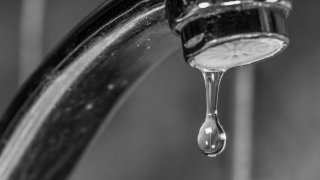
Clean water activists hope that water suppliers will remove an industrial pollutant under new water standards adopted Thursday in New York.
The state’s Public Health and Health Planning Council adopted standards that set a maximum level for how much of the hard-to-remove chemical 1,4-Dioxane can be in drinking water: 1 part per billion.
The chemical is often found in baby products, shampoos, body washes and lotions, and Environmental Protection Agency data shows areas of Long Island have the highest levels of 1,4-dioxane detected in the country in public water. Home filters can’t remove the pollutant, which experts consider a likely carcinogen.
New York has also approved maximum contaminant levels for other industrial chemicals PFOA and PFOS: at 10 parts per trillion. New York’s regulations require public water systems to regularly test and monitor for all three chemicals, which remain unregulated by the EPA.
"While the federal government continues to leave emerging contaminants like 1,4-Dioxane, PFOA and PFOS unregulated, New York is leading the way by setting new national standards that help ensure drinking water quality and safeguard New Yorker’s health from these chemicals," Gov. Andrew Cuomo said.
Citizen groups hoped other states would follow and cheered New York’s move, which comes after months of debate, concerns from water supplies about the cost of removal and opposition from chemical industry lobbyists.
"These new enforceable standards will ensure that water suppliers use the necessary treatment and provide for the removal of this harmful toxin," Adrienne Esposito, executive director, Citizens Campaign for the Environment, said.
News
Cuomo previously signed a bill effective Jan. 1, 2022, to prohibit the sale of household cleaning products that contain 1,4-Dioxane.



